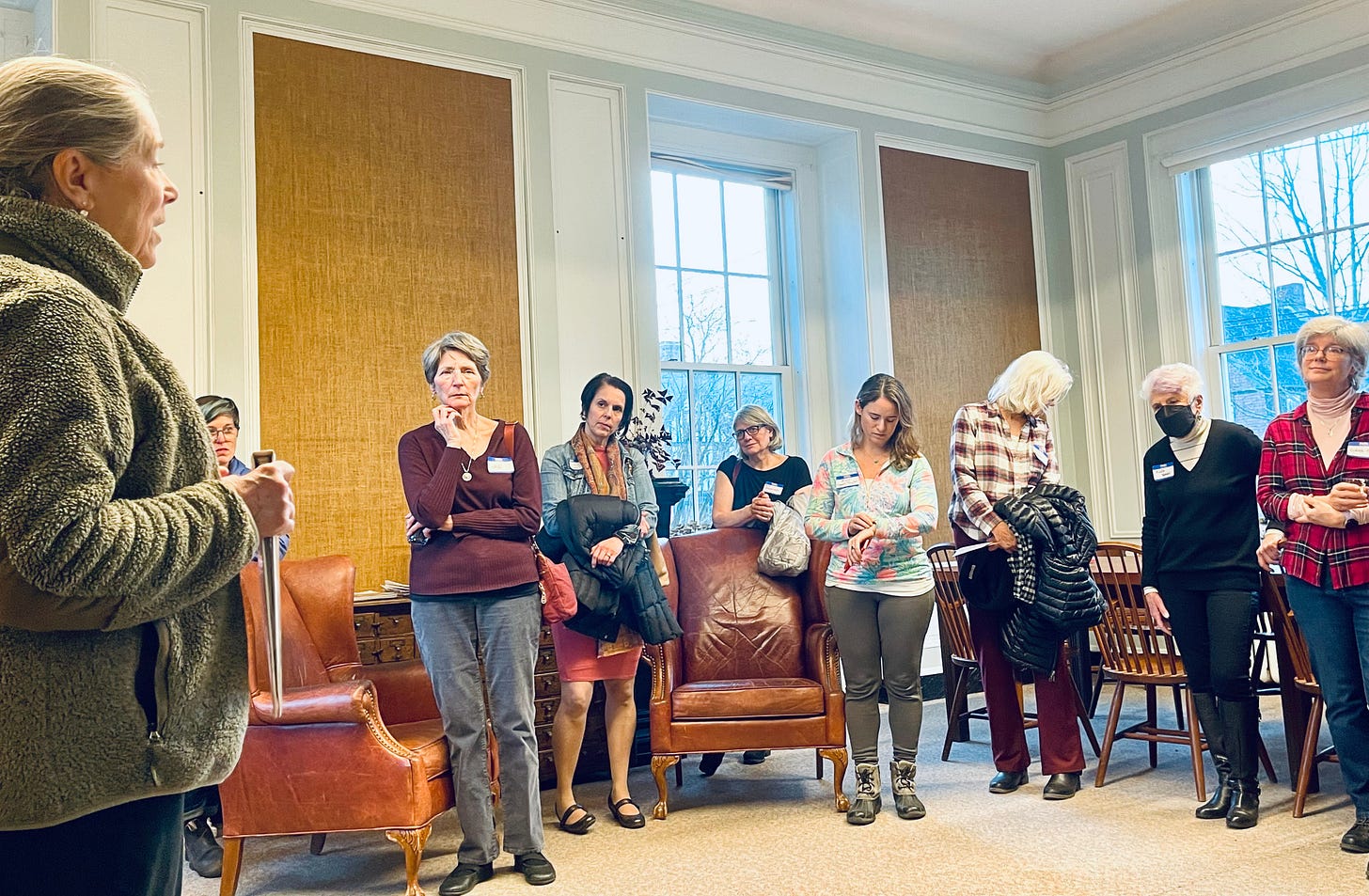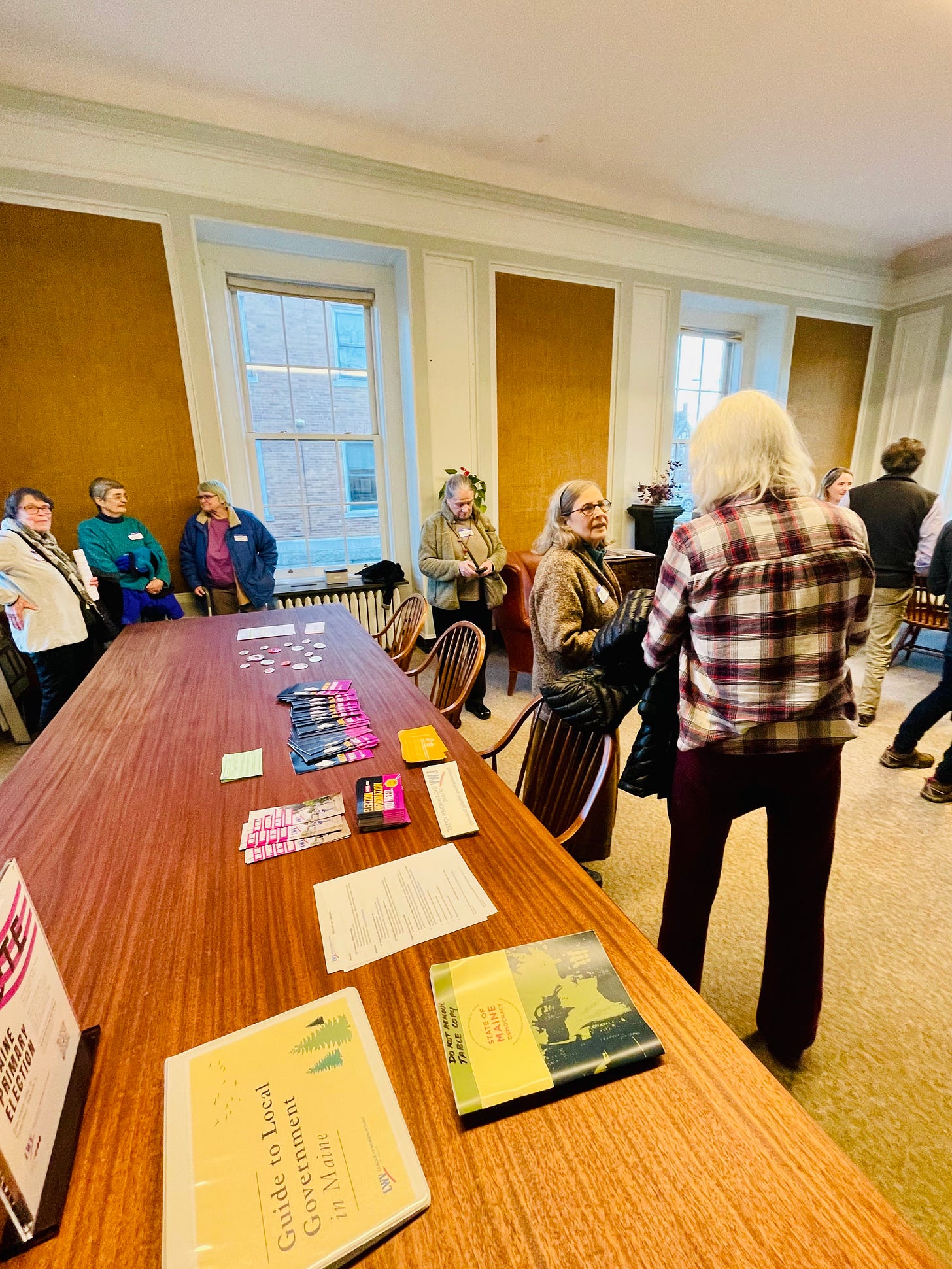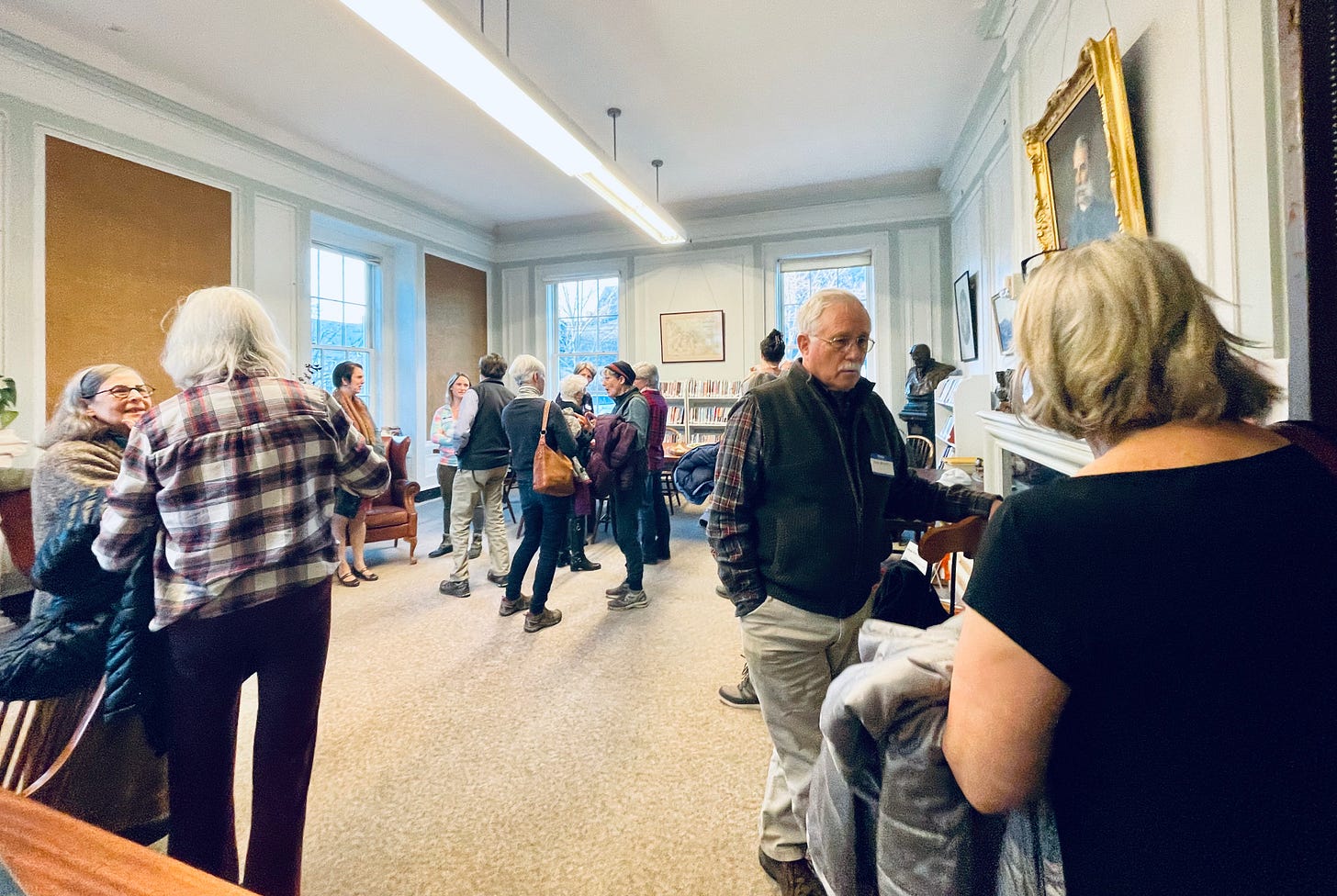BAR HARBOR—Many might not think that the gift of voting is a gift of love or that the ability to vote is an act of love, too.
Alex Newell Taylor is not one of those people.
That’s what Newell Taylor explained at the Jesup Memorial Library last week when she told her story about her family, voting, and advocacy. The Southwest Harbor woman was growing up in Florida when she heard about the League of Women Voters trying to get people who were convicted of felonies a right to vote. When she talked to them, she was all in.
That’s because when she talked to them, she thought of her own father.
With that meeting and that voters’ rights campaign, a lifetime of advocacy began. She worked and called and canvassed, along with a lot of others, to get Florida voters in 2018 to pass a law that allowed those who had once been incarcerated for felonies other than murder and sexual offenses to vote.
A year later something big happened. Newell Taylor had been part of a really big gift to her father.
“Dad texted me and said he got his first voter ID card since 1963,” she said.
Since then, that Florida decision has been contested and legal battles have ensued, but her dad voted in the 2020 primary before he died, and that was a big deal to both of them.
Voting, going to the polls, even mailing in a ballot is an act of civic responsibility for many. It can be in protest or in support. There is also a community aspect of standing in poll lines, talking to neighbors and strangers, gathering at places to engage in government. That right to vote, to engage, is a large part of the non-partisan, grassroots’ organization’s mission.
The League began 104 years ago when Carrie Chapman Catt looked out at the convention crowd at the National American Woman Suffrage’s Association in St. Louis, Missouri, and implored them to band together. The next year, in 1920, on Valentine’s Day, the League was born.
Its original mission? To unite other women organizations. But more than that. Catt said, “The League of Women Voters is not to dissolve any present organization but to unite all existing organizations of women who believe in its principles. It is not to lure women from partisanship but to combine them in an effort for legislation which will protect coming movements, which we cannot even foretell, from suffering the untoward conditions which have hindered for so long the coming of equal suffrage. Are the women of the United States big enough to see their opportunity?"
That unity and effort is still a large part of its mission in 2024. Its website reads,
“The League of Women Voters of Maine is a nonpartisan political organization that encourages informed and active participation in government, works to increase understanding of major public policy issues, and influences public policy through education and advocacy. We never support or oppose any political party or candidate.”
They do that work, Newell-Taylor said, quietly, diligently, and persistently. “I love everything that it stands for.”
Meet and greets like the one at the Jesup Memorial Library and an earlier one in Blue Hill are meant to help spread the word about what the League does and encourage membership. Anyone over 16 can join.
Ellen Dohmen said, “The League is so concerned with enfranchising everyone on every level.”
Priority legislation that the League is looking at for the remainder of the 131st legislative session include: national popular vote, tribal sovereignty, and gun safety reform.
Hosting office hours on Zoom about elections, organizing an Advocacy Day in Augusta, phone banking for the national popular vote, hosting democracy forums at WERU, holding civil discussions and public meetings, and bill trackers in Augusta, the League is busy. Hancock County is a big part of it. Both Dohmen and Newell Taylor are board members and MDI residents. The board treasurer, Ann Luther lives in Trenton. Another board member, Rick Lyles, lives in Ellsworth.
"It’s a lot of work,” Luther said, about all the advocacy and education the League does about civic matters. “It’s a lot of fun.”
At an informal event at the Jesup Memorial Library last week, members and others gathered, trying to foster connections.
“The primary point is for people to talk to each other,” said Ruth Eveland, one of the organizers.
Connections matter to the League and to community. So, does knowledge.
LINKS TO LEARN MORE
The League’s Advocacy Day is tomorrow, Feb. 15. Learn more here.
To find out more about the League.
To learn about its upcoming events.
The League’s guide to the March 5 primaries in Maine.
From the League’s website:
Help, how does a bill become real law? It's a new legislative session here in Maine, which means some of us may need a refresher on how a bill becomes reality. We've got you covered. Click here to read the quick version.
Who's my legislator? Sometimes we forget the names of our elected officials. No shame there. Use the Maine Voter Lookup Service to find all the names and contact information for your people.
Where do our bills go? The bills that the League works on appear before the State and Local Government (SLG) and Veterans and Legal Affairs (VLA) Committees. If you read Under the Dome often, you'll be familiar with the SLG and VLA acronyms. Would you like to see which legislators are on these committees? Check them out here: SLG and VLA.
Where can I see the bills? When you want to look up a bill, you can use this search feature. The League also provides bill tracking on our website, but only for bills specific to our priority areas.
How do I write and submit testimony? Public hearings are the time for everyone to offer their opinion on the legislation through testimony. It's an important step in the process. Click here to learn how you can use your voice to take action.“










